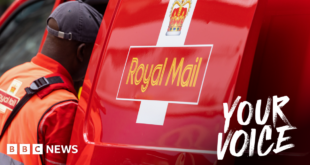“Jonathan Reynolds’ position puts taxpayers and bill payers at financial risk — and throws the environment under the bus.
“New Labour showed us with Railtrack how to protect the taxpayer when an essential public service goes bust. We call on Starmer’s Labour to do the same with Thames Water.” — Cat Hobbs, Director, We Own It
Earlier this week, Jonathan Reynolds (Labour’s Shadow Business Secretary) said, responding to a question about Thames Water in an interview with Bloomberg, that: “I wouldn’t want to see a nationalisation. I think there should be a solution that falls short of that.”
His reasoning is that “investment can involve losing as well as gaining money,” while “people should not expect the state to bail out bad investments.”
Labour’s unwillingness to nationalise Thames Water doesn’t stop the private sector pushing risk onto the public; in fact, failure to take Thames into local public ownership makes the taxpayer, the billpayer, and our environment more likely to bailout the existing shareholders.
The greatest authorities on the public finances, the Treasury and Debt Management Office, have called for an end to Thames Water’s privatisation to protect the taxpayers from a Truss-style borrowing crisis.
Thames Water has taken on some debts with an interest rate over 2.5 times higher than the notional public rate, meaning their debt will continue to skyrocket under privatisation, with bill payers paying more to service the mountain. Already, 28 pence in the pound goes from our bills to Thames’ creditors.
If a new Labour government allows the current owners and creditors to stumble to safety by putting up customer bills and facing an easier regulatory regime (e.g., higher dividends, lower fines) that puts the cost onto the public and environment.
It also sends a message that if you own an essential service, Labour will let you pass on the costs — what does this say to owners of other utilities like Royal Mail, energy firms, or the banks? New Labour took a different approach, standing up for the public when Railtrack went bust.
Reynold indicates that private capital must accept it can lose money, as well as profit. However, only Special Administration and public ownership would force creditors to take the loss, rather than protecting their interests. Treasury plans would wipe out £2bn of the holding company’s debt; 1 in 10 of Thames Water bondholders would see haircuts of 40 per cent, while the rest face 5-10 per cent cuts.
Analysis by a former ‘big 4’ accountant found that there has never been a year where Thames Water shareholders contributed more cash than they took out.



